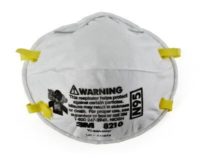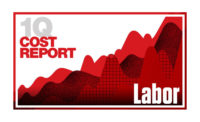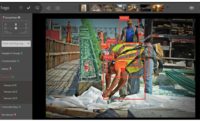Industry donations of masks and other construction site protective gear are rising as firms assist healthcare workers to handle growing COVID-19 caseloads across the U.S. and to support medical facility clients.
[For ENR’s latest coverage of the impacts of the COVID-19 pandemic, click here]
“How could we not?” said Art Corwin, president of Paterson, N.J.-based Railroad Construction, referring to its donation of several hundred masks to hospitals and a homeless shelter in the city, as well as facilities in Morristown, N.J., and New York City.
“These first responders … in the long run, we have to protect them or it will get worse for all of us," he says. "We don’t have a lot of masks left in our inventory, be we just said, ‘We’ll deal with it.’”
In Syracuse, N.Y., the Hayner Hoyt Corp. donated about 1,200 N95 masks to local St. Joe’s Hospital and another 1,200 to Crouse Hospital, both existing clients.
Jeremy Thurston, firm president, said the company had recently received a large order of masks when hospitals began to express a need. Keeping a small inventory for its own workers' need, the company gave away the rest, he said. “We checked with our suppliers and we hope we can replenish our stock in April.”
Thurston said that word of its donation triggered similar requests from about 100 health care providers and other organizations.
“It’s heartbreaking that we couldn’t do more for the other organizations that are in need,” he said. “It’s one of those times where everyone has to step up to see how they can support the community and help those doing life-supporting work.”
A desperate call for N95 masks in Raleigh, N.C., came from the spouse of a project manager at Clancy & Theys Construction Co., who is a nurse at University of North Carolina- Rex Healthcare, says Matt Chambers, the contractor's senior director of corporate project development. “We were already in the process of going through our inventory. So, the project manager was able to take 100 masks over,” he adds.
The firm provided another 250 N95 masks to Atrium Health in Charlotte.
When contacted by Bryan Health in Lincoln, Neb., about a mask donation, Sampson Construction offered 595 N95 masks from its inventory. “We’re trying to get more, maybe another 200,” says Joseph Young, its director of business development. “We were lucky that they called us when we had a large inventory.”
Last week, contractor O&G Industries, Torrington, Conn., pulled more than 100 N95 masks from its project sites to donate to nearby Charlotte Hungerford Hospital, as well as the local police department. Firm spokesman Seth Duke says it typically keeps four to six months of personal protective equipment in inventory and is seeking more to donate from jobsites.
“We’ve got several thousand pairs of latex gloves that we’ll be able to free up,” he said. “We’re in the process of gathering those now.”
Rycon Construction, Pittsburgh, donated several negative air machines, along with N95 masks, directly to St. Clair Hospital in Mt. Lebanon, Pa.
The contractor often uses the machines on hospital construction projects but was able to offer some not in current use.. “One day, maybe we’ll get them back, but for now those machines are theirs to use as they see fit,” said John Sabatos, the firm's president and chief operating officer. “We all have to stick together through this as an industry and help where we can.”
Even as more donations are made, municipal officials are joining the calls for new PPE supplies. Boston Mayor Martin Walsh has reached out to local businesses for donations of masks and respirators, and New York City Mayor Bill de Blasio told CNN that hospitals in the city would start running out of necessary equipment by month's end.
On March 22, 3M said it had maximized production levels of respirators and doubled its global output to a rate of more than 1.1 billion per year, or nearly 100 million per month. In the U.S., the company is producing 35 million respirators per month.
“As I write this, more than 500,000 respirators are on the way from our South Dakota plant to two of the more critically impacted areas, New York and Seattle, with arrivals expected starting tomorrow,” according to a statement from 3M Chairman and CEO Mike Roman.





Post a comment to this article
Report Abusive Comment